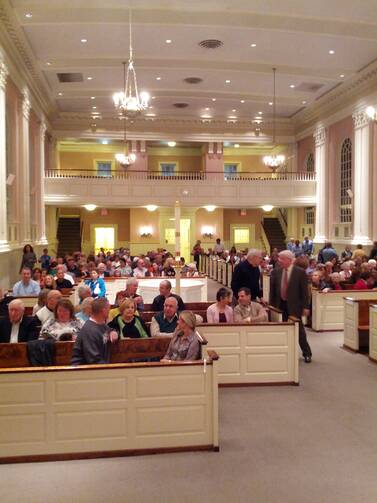A little about the Vatican's surprising plan to poll Catholics about important issues in preparation for the Synod of Bishops next October, just reported in NCR.
First off, this is indeed new. While in the past bishops were encouraged to promote discussion in their dioceses in preparation for a synod, there were never any outright polls conducted, and certainly nothing on a worldwide basis. Second, needless to say, the questions are not going to ask, "Should we overturn this church teaching?" Nonetheless, the Vatican will surely get a better sense of how the teachings are being "received," to use a theological term, by the faithful. Third, the U.S. bishops seem to have received a sort of exemption from doing the polling (at least that's how I read the covering letter). Here's an update from the USCCB on that question. "It will be up to each bishop to determine what would be the most useful way of gathering information to provide to Rome," said Helen Osman of the USCCB.
But that doesn't mean that a bishop can't conduct a poll, or that he won't conduct one. And even if none of the US bishops choose to adopt the idea of a poll (which is hard to imagine) the Vatican will be hearing from the rest of the world through a poll, which is both good and new.
Also, the news makes me smile, because for years when some people would speak about the sensus fidelium (that is, the "sense of the faithful") as an important part of the way that the church lives and grows, a few people would protest, "But the church is not a democracy! And we don't do polls!"
People often forget the Second Vatican Council's teaching on this matter in "Lumen Gentium": "They [the laity] are, by [reason of] knowledge, competence or outstanding ability which they may enjoy, permitted and sometimes even obliged to express their opinion on those things which concern the good of the Church."
Finally, it's a sign, in case we needed to be reminded, that the Holy Spirit is at work in everybody. From the Pope, to the local bishop, to your pastor, to the sister teaching in your school, to the director of religious education at your parish, to the mother of three, to the man who holds out the collection basket on Sundays, to the college student struggling with her faith, to the fellow who cleans the church bathrooms, to the Catholic baptized just last Easter.
The Holy Spirit is at work in her church and in her people. And she will let her voice be heard, this time through these polls, because she desires to speak.









There is no gender to the Spirit, needless to say. And if you want to reach farther back, Ruah, the Hebrew word for Spirit, and the traditional way for the Hebrew people to speak about the Spirit, is feminine.